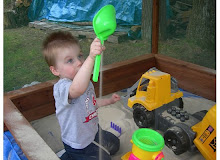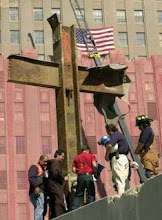Every situation in life, good or bad, presents an opportunity for growth, and an opportunity to learn a lesson. Each lesson will be different, depending on your experience.
I recall attending a meeting, where I suggested that before we endeavor to consider venturing into a project, we should try to anticipate the needs, problems and provide a plan of action before we decide if it is feasible to go forward. My idea was shot down immediately, with the reaction being, if we have problems, we will address them as they arise.
This January has demonstrated the value of what I said at that meeting. Anticipation of what could happen, and having a protocol in place, lessons the chance of compounding a problem, or avoiding it altogether.
We may not have been able to stop the storms and all the complications incurred as a result of them. Upon hearing about them heading toward us, we're off to the store to buy milk and bread. If this is how we prepare for survival, we simply are not prepared. This winter has taught many of us a lesson. It is a blessing sometimes when we are awakened from the error of denial. Next, I'm sure we could be facing the flooding caused by the endless snow mounds, seeping into the basement of many residents, even those who have not had the experience with run offs previously. Consider moving things to higher ground, if possible--now.
Here are a few things that you should always carry in your car in the winter: boots, a warm hat and gloves, just in case you are on the road and stopped for a good amount of time, no matter what the distance. A blanket wouldn't hurt either and also water. It is wise to fill up your gas tank. How do you know that the station you are relying on is going to be open when you get there? No one wants to be stranded for any reason during a storm. Should you need to spend the night unexpectedly, you should also have additional medications and some extra cash and a flashlight.
Many have experienced damage in their homes that could have been prevented with a watchful eye, and an action plan. Keeping ice off of gutter's is not always possible, but excess snow amounts, near the gutters can be raked down by utilizing a snow rake, preventing excesses from accumulating and causing an ice dam. This was the year people learned about the use of a snow rake, the many who needed one but were unable to purchase it, due to high demand, and unavailability. In fact, I heard where one company had it in stock for rental, raking in the bucks. It's also a good time to have in place a good ice pick and hammer for chipping ice down from the gutter edge, if water is escaping in the form of ice, which accumulates on your building. Sometimes, you just cannot do the job yourself, safely. Know who is available and on-call---in the ready. Hiring someone, can be near impossible unless you have a regular on the payroll, or know a family member/friend who can help out.
Action plans must be developed, like keeping doors operable, that may require your cleaning in front of them several times during a storm. Limiting your entrance until you can get it cleaned out and having prior instructions to those who visit your home, office or facility by way of a sign or "rope " with colored, visible hanging fabric, may be a temporary way to deal with ice or unsafe entrance. Places should be well lit, and battery operated radios and flashlights are most beneficial in an emergency, where you could lose power sources.
I know two people who could not get their snow blowers to start, so off for maintenance, which I'm told required a truck and running boards to transport the equipment, only to find they were number twenty-something. What is plan number two, in the event of equipment failure?
When I hear of possible outages, I always cook ahead. It is better to eat cold than not at all. I usually make hard boiled eggs, a loaf of some kind, cornbread, and of course canned foods--making sure I know where the hand-held can opener is. Water is an essential. Believe me, keeping foods cold will be the least of your worries.
We often hear of evacuation to safe locations. Do you know where there is one closest to your home? I don't. How will you hear of it without a battery operated radio? Most cell phones do not work during an emergency, as we have experienced in the past, your on your own.
Communication is the very most important consideration...Where are your family members and do they know how to reach you, where will they will find you? Do you know who is in your dwelling? Can you give a count? Should the lights go out in a hall or at an event, do you know who was sitting at your table? Who is the go to person? Who do we call that is in charge of the building? A "Plan of Action" should already exist as to who should be called in any emergency and what needs to be done as a result. An emergency meeting may have to be called to "decide" on the best plan of action according to safety and other specifics.
Anticipation of problems, countered with a clear-cut and a well developed plan of action, is the key to helping prevent serious injury and loss. Either way, this opportunity for "preparedness" can be developed either before or after an event, such as we just encountered, the choice is yours. Lack of communication and information, in the end will cost you more than you may be willing to pay--and that is a lesson that may be learned the hard way.
Keto Simple
5 years ago



























No comments:
Post a Comment